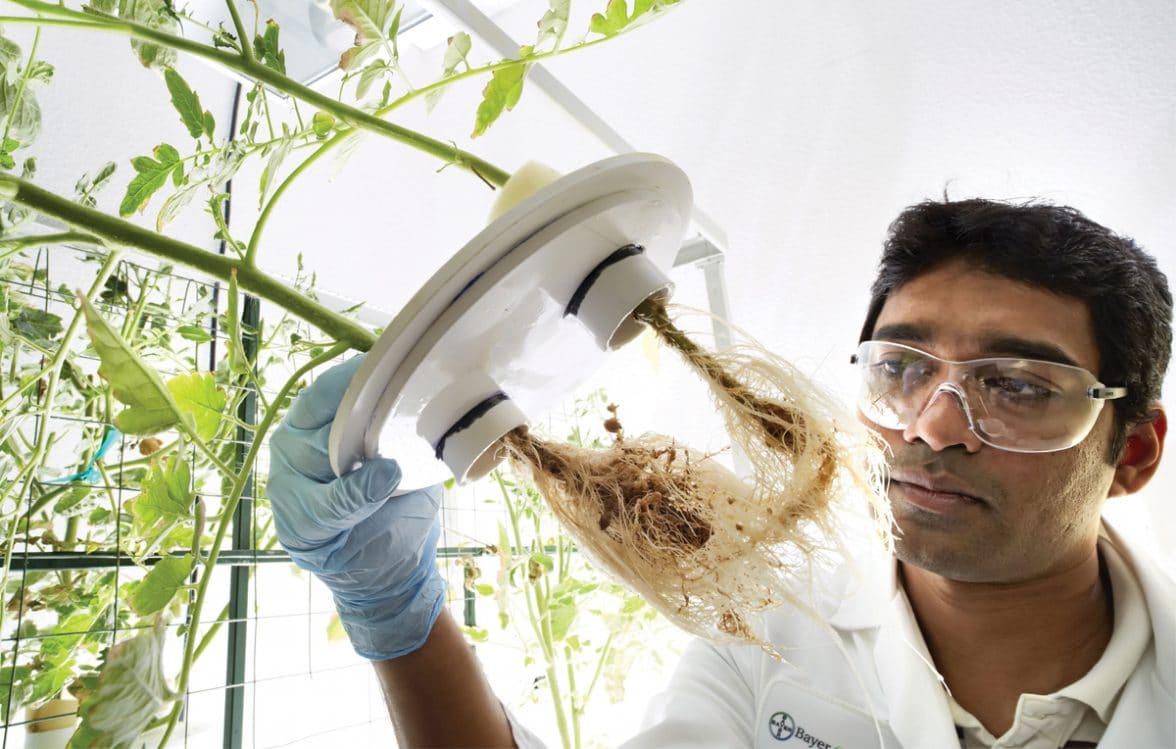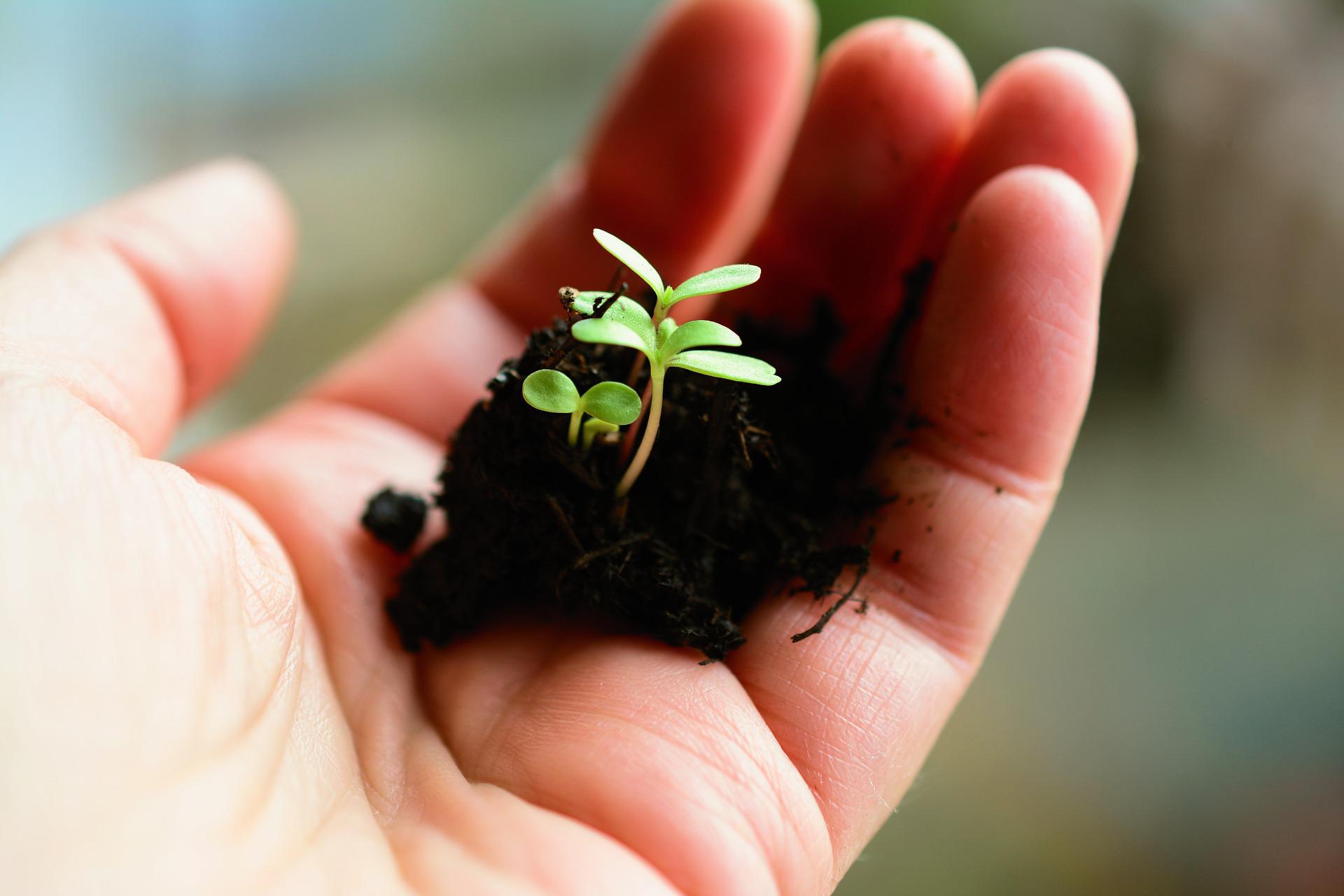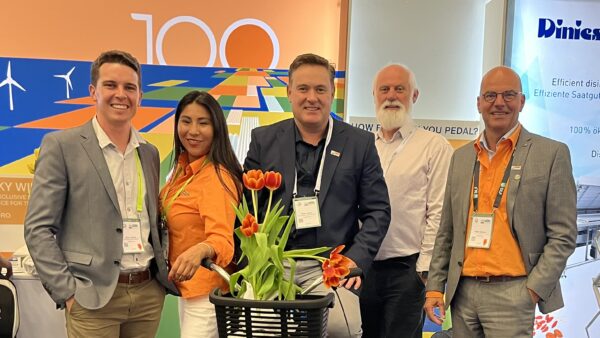ETP is creating an integrated strategy to build industrial leadership, boost research and educate the next generation.
Securing a sustainable global supply of high-quality food and feed, and supplying renewable biomass for the production of bio-based products and energy are key priorities for both European and global society. In the coming decades, the European plant sector will play a central and essential role in meeting this challenge and achieving this will depend strongly on the generation and transfer of new knowledge, and greater innovation in the plant and agricultural sectors.
The European Technology Platform ‘Plants for the Future’ (Plant ETP) represents the most important stakeholders that provide plant-based raw materials for the food and feed industry, chemical, pharmaceutical and other processing industries, and the (bio) energy sector. It is a platform bringing together public and private researchers, industry and the farming communities in order to align research priorities and set up strategic action plans to promote research, innovation and education in the plant sector. Plant breeders, farmers and scientists work together within the framework of the Plant ETP to develop joint solutions in order to better respond to grand societal challenges and work for supportive and clear policies for the plant and agricultural sectors. Research, innovation and education in plant breeding requires long-term vision and investment and this is why the European Seed Association is a founding member of this platform – to contribute to the development of technology and processes that will respond to the needs of farmers. Europe’s plant breeding industry and public plant science research are global leaders in developing advanced plant breeding techniques and providing competitive, high performing, and safe seeds for agriculture and food, feed and non food production.
Short- and Mid-term Major Challenges
These include requirements for more yields, better and more tailored quality of biomass, and more flexible production conditions, to address reduced use of natural resources and climate change. In addition, there is a growing need for a European approach to the intensifying, global economic competition, as well as to balanced production that appropriately services existing markets and new ones, such as energy. The plant sector already makes a vital contribution to society. It addresses challenges and mega trends of global relevance, which are also included in European strategies and programmes, such as the Bioeconomy Strategy1 , Horizon 2020 and the Juncker Investment Plan2 as
well as global reports from IPCC3, FAO2, EASAC4, etc.
The question is: is this enough?
The plant sector must make an even greater contribution to the increasing demand for safe and sufficient food supplies. The development and timely uptake of innovative solutions in the plant sector will depend strongly on novel research findings, efficient knowledge and technology transfer, greater investment in innovation by venture capital, and appropriate regulation.
European farming and agro-industry is well-positioned to solve these challenges.
The best way forward is to develop plants and plans for the future. This requires an integrated action that seeks to nurture research and innovation potential and ensure societal mechanisms are in place to implement improvements and develop new knowledge. In its early stages, Plant ETP successfully focused on formulating a European Research Strategy and has succeeded in establishing a permanent European fund for plant research. The challenge was to translate this Strategic Research Agenda (SRA) – launched in June 2007 – into a Research Action Plan (RAP)5, and define priorities and instruments for its implementation. In parallel, Plant ETP developed an Innovation Action Plan (IAP)6 to promote a better flow from innovation concept to marketable product and an Education Action Plan (EAP)7, to secure the development of the required human resources, skills and capabilities. On March 2015, Plant ETP officially released its Action Plans on Innovation, Research and Education.
“We have the plans, now we need the action. Our challenges are global, let’s work together,” stressed Uli Schurr, Chair of Plant ETP. “It is important that a coordinated European research and innovation efforts are composed of short-, mid- and long-term deliverables. The reason is the large range of R&D timelines (1-20 years) in the different innovation areas of the plant sector, the variable lag-time for product delivery following adoption of new [European] regulations and the plant-based innovation needing long-term investment even for farmers.”
Excellence in Plant Breeding
Europe possesses a unique geographic and climatic diversity, a tremendous wealth of cultivated and undomesticated crop species, and long-standing plant breeding and farming management practices experience. Europe should continue to build on the excellence it has achieved in this area by promoting new initiatives to make the most of this vital natural resource. Long-term coordination of public and private efforts in the primary plant production field is urgently needed to stably align the needs of industry and farmers with the R&D sector and build a basis for innovation in the sector.
Public-private partnerships for open innovation in the plant sector can support translational research and ensure the effective transfer of knowledge into products and uptake of innovative new developments by end-users. The Plant ETP advocates for the allocation of a dedicated European budget for plant innovation via a public-private collaboration that can leverage additional private funds as necessary.
The increasing demand for food, feed, fibre, industrial products and energy requires a multidisciplinary approach driven by science, technology and innovation. The prime drivers for success – sufficient biomass of the right quality and at the right time – are breeding and breeding innovation. The contribution of these drivers are recognized by many, yet so far a proper qualification and quantification of the benefits of plant breeding has not been carried out. This is why the European Technology Platform ‘Plants for the Future’ decided to commission a study on the economic, social and environmental benefits of plant breeding in the European Union (EU).
The study aims to provide reliable, science-based and well-understandable quantitative and qualitative insight on the benefits that plant breeding offers to societies and to the bio economy. In particular, the socio-economic and environmental value of plant breeding in the EU becomes quantifiable and, thus, apparent. The study is ongoing and will be finalised by the end of October 2015. Plant breeding is the first and fundamental element in the bioeconomy value chain. The European plant breeding industry is constantly adapting to new demands and cultivation challenges. Its R&D delivers plant varieties destined for specific end-uses as to add value to all biobased products and processes to follow. To ensure that plant breeding industry has the confidence to innovate, a policy framework that supports innovation in agriculture and that encourages the uptake of agricultural technologies on the farm, is crucial.
Technology and Sustainable Agriculture
In the next 50 years, we have to produce more healthy food than ever before – on less land per capita, with less water, energy and chemicals. We must achieve this sustainably, not to overburden future generations. In addition, plants become a key resource for biomass and high-value products helping to shift from a fossil-based to a biobased economy. While socio-economic approaches may have great potential to reduce food losses, innovative technologies will be essential to produce more and better from less. Agriculture has always been dependent on the incorporation of new technologies, often inspired by necessity.
In the middle of the 20th century, a number of different technologies have had a significant impact on agricultural production (e.g. genetic hybrids; fertilisers; crop protection products; mechanical tools and tractors). They have greatly facilitated the work of farmers and finally many agronomic approaches were developed to allow the best use of resources. All this progress could only happen through interdisciplinary effort bringing advancements of basic sciences and technology into good agronomic practices.
Application of new technologies will enhance our ability to improve crops further. Taking advantage of the genetic diversity of plants will not only give consumers a wider choice of food, but it will also expand the range of plant-derived products, including novel forms of pharmaceuticals, biodegradable plastics, bio-energy, paper, and more.
Therefore, the contribution that the European plant sector makes to build the bio economy, to achieve the challenges of food security and safety, to mitigate climate change and maintain employment in Europe is vital. It is more important than ever for the EU to maintain agricultural activity and competitiveness. More than ever, progress in productivity will rely on genetics: while productivity gains were still up to 50 per cent due to technical and managerial progress between 1940 and 1980, since then almost 90 per cent of this increase depends on improved genetics.
Public Perceptions
Europe can only maintain its position in the global development of the bioeconomy if society is open and supportive to all relevant technologies and innovations. The implementation of technologies must be considered relative to their contribution in addressing global societal challenges and needs. Europe should aim to support all technologies in a balanced way and be able to combine advantages of various technologies, as no single approach will provide the full solution. This will lead to a new approach of one WITH the other overcoming the current situation of one OR the other. The urgency of the huge tasks ahead demands an open-minded approach.
The general public is not only important as the consumer of biobased products, but also as the societal force that supports or hinders innovations. There is little public recognition of the fact that the production of sufficient and safe food in a sustainable manner requires state-of-the-art research and a strong agricultural supply industry. The lack of attractiveness of plant sciences and agriculture begins at school. For the implementation of a future bio economy, ‘Plants for the future’ ETP aims to increase dialogue between public and plant sectors in order to overcome the hesitation and scepticism of many parts of the European societies vis-à-vis generation and utilisation of knowledge about biological systems.
More effort is needed to convey the high- tech, innovative nature of the plant sector and the worthwhile career opportunities they can offer. There is a need to put plant science and agriculture into a broader context so that students as well as policy makers are better able to see their relevance.
Industry in Action
The Fascination of Plants Day (FoPD) initiative, which was launched in 2012 by the European Plant Science Organisation (EPSO) across Europe and by Plant ETP at the European Parliament, has become a global event. It promotes plant sciences to the general public, politicians and research councils. It is a great success in terms of the number of events organised in university departments, institutes, botanic gardens, companies and public places, interacting with and inspiring the public and schools with a diverse range of activities. Several other initiatives have been put in place to improve the public appreciation of plant science, plant biotechnology and agriculture. They can be found in the Education Action Plan of the Plant ETP.
For more information on the 2015 Fascination of Plants Day, turn to page 44.
Editor’s Note: Silvia Travella is the coordinator of the European Technology Platform ‘Plants for the Future’.
1 Innovating for Sustainable Growth: A Bioeconomy for Europe, EC 12th Feb 2012
2 An investment plan for Europe, Brussels, 26.11.2014, COM(2014) 903 final
3 5th Intergovernmental Report on Climate Change Working Group II –Summary for Policymakers – Effect on Food Supply, 31.3.2014
4 EASAC report: Risks to plant health, 10.03.2014
5 http://www.plantetp.org/images/stories/stories/documents_pdf/PlantETP_ResearchActionPlan per cent20corrected.pdf
6 http://www.plantetp.org/images/stories/stories/documents_pdf/Plant per cent20ETP_InnovationActionPlan.pdf
7 http://www.plantetp.org/images/stories/stories/documents_pdf/Plant per cent20ETP_EducationActionPlan.pdf













